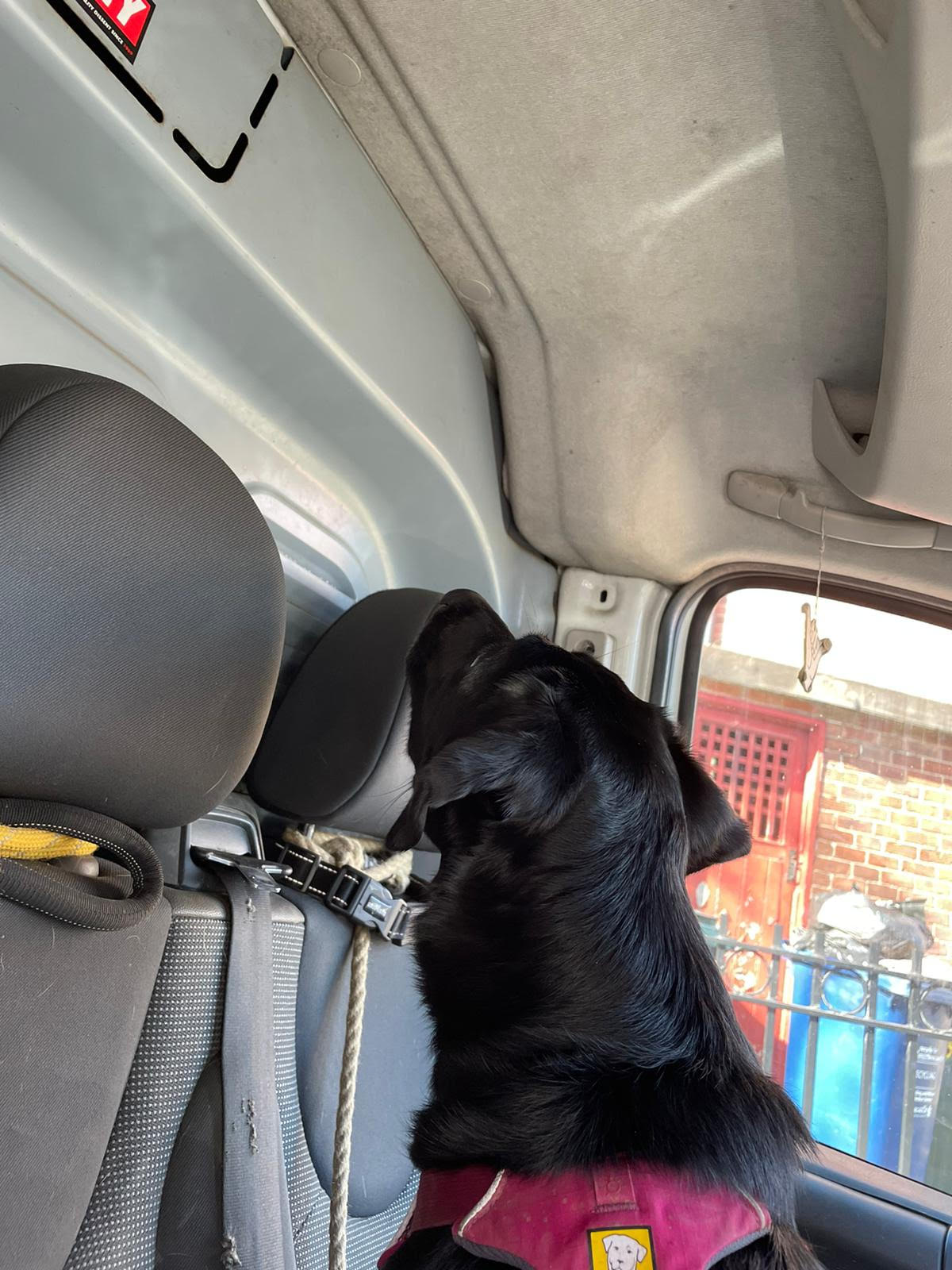dog behaviourists vs dog trainers: what’s the difference?
As you may have seen from recent news coverage, stories of ‘dogs behaving badly’ have been on the rise in recent years. From the often comical (anyone remember the infamous ‘Fenton’ video?) to the more concerning (dog attacks have reportedly increased by a third in the last five years), we are frequently confronted with evidence of our dogs’ struggle to thrive in our world.
Throw in a few big societal changes, such as COVID-19, the invention of the social media ‘dog-lebrity’, and the seemingly endless number of dog-based reality TV shows, and it is easy to see why today’s humans are also more stressed and anxious about their approach to dog ownership than ever before.
As a result these days even the most experienced owner may find themselves seeking out the services of a behaviourist or trainer at some point over their dog’s lifetime. However for many owners (particularly first time dog owners or new owners of rescue dogs), knowing exactly what support you might need, and when to get that help, can be a minefield.
In the post below, we outline some of the basic differences between dog behaviourists and dog trainers, and provide some guidance on what to look for in the two in order to ensure you can always get the best for your dog.

dog behaviourists and dog trainers: the differences
First of all, it’s very important to stress that a dog behaviourist and a dog trainer, whilst overlapping in many respects, are fundamentally different, both in the services they can offer to you, and their philosophies of working. Whilst some professionals do double up both as trainers and behaviourists (such as our own trainer and behaviourist Jo Hall), being clear on which of their services you want from the outset is important in order to make sure you can achieve the desired outcome for you dog.
So what are the differences between the two?
In short, dog trainers train your dog, whilst dog behaviourists focus on your dog’s behaviour.
Whilst this may seem obvious, it’s important to point out, as training and behaviour based work look at two different (although interrelated) aspects of your dog.

dog trainers
Dog training offers a more preventative approach to working with your dog, in so far as trainers seek to build behaviours in your dog that will help prevent bigger behavioural issues further down the line. So a dog trainer might focus on things like loose lead walking (to prevent pulling on the lead), building perfect recall (to avoid them getting into unwanted or dangerous situations that may cause fear later on), basic puppy training (e.g. bite inhibition, toileting, and separation training), appropriate play (both with dogs and humans to prevent negative experiences) and more.
Anyone can refer themselves to a dog trainer at any stage in their dog’s development, although here at Jess Fox & Hound we recommend working with a trainer early on to ensure that you build the right foundations for you and your dog later in their life.
What dog trainers can’t do is deal with some of the more complex aspects of your dog’s behaviour, which might be underpinned by a deeper set of issues, such as historic trauma, or chemical imbalances in your dog’s brain. For this, you would need the services of a dog behaviourist, as below…
.
dog behaviourists
By contrast, dog behaviourists deal with unwanted behaviours in your dog, which may have arisen either because of poor training in the early stages of their life, or because of negative experiences they have had in the past which have lead them to develop a pathology. Examples of the kinds of behaviours that a dog behaviourist might be engaged for include (but are not limited to); separation disorders; reactivity (to dogs/humans/other ‘triggers’); resource guarding; dogs with a bite history; excessive vocalisation (constant barking/whining/howling) or obsessive compulsive disorders (shadow chasing/chewing/compulsive licking and more).
When dog behaviourists work with your dog, they are often doing so at a deeper level than a dog trainer. Working on your dog’s behaviour means having the training and awareness to be able to read your dog’s body language, and to be able to build a psychological understanding of why such behaviours exist in order to be able to treat them.
Finding a good dog behaviourist also sometimes requires a vet referral, or at least a behaviourist who is recognised by a vet and is able to liase with them, as many complex dog behaviours may also require veterinary input in the form of medications, alongside your behaviourist, in order to maximise the impact of the work you do with them.

dog behaviourists and dog trainers: the similarities
Now onto the similarities!
The desired outcome for any dog trainer or dog behaviourist is to make yours, and your dog’s life happier all round. Sometimes this means focusing on what is going on for the dog (are there things in the world that make them fearful? Have they had bad experiences in the past which impact the way they see the world now?). Other times it’s more about finding ways of improving the dog-owner relationship, whether through making them easier to walk (loose lead training) or doing basic obedience training.
However as important as the outcome is, it’s more important to be attentive to the process that your dog trainer or behaviourist uses.
Part of the difficulty finding a reputable dog trainer or behaviourist lies in the fact that both are unregulated professions, which means anyone can advertise themselves as a trainer or behaviourist without needing a qualification, or having prior experience. As a result, undesirable practices, such as shock collars, slip leads or other aversive methods, have been widely used by inexperienced trainers or behaviourists, sometimes with drastic consequences for the dog’s longterm behaviour and wellbeing.
As a result, when looking for a dog behaviourist or trainer, you should always look for one that uses a positive, or force-free approach to their work. This is something that some of the industry-leading bodies, such as the Association of Pet Dog Trainers, the Animal Behaviour and Training Council , or Fellowship of Animal Behaviour Clinicians advocate, and their directory of trainers and behaviourists contain only those professionals who use these approaches. Trainers and behaviourists on their registers must also have undertaken appropriate qualifications with an accredited body and have passed their own internal assessments before being added to the directory, which offers you a shortcut to getting a quality, reputable behaviourist or trainer. Looking at the directory of some of these industry bodies is the first step in ensuring that your hard earned money goes towards someone who is not only qualified to look after the welfare of your dog, but who will also always be incorporating cutting edge research into their practice.
If you’re looking for a behaviourist in particular, then your vet can also recommend a clinical animal behaviourist, as might be found on the Fellowship of Animal Behaviour Clinicians, where our own Jo Hall is registered. Clinical animal behaviourists provide a distinct advantage to you, in so far as they are able to prescribe medication directly through your vets, rather than you requiring an independent veterinary consultation for this.
Here at Jess Fox & Hound, we have the advantage of a trainer and behaviourist who is also a registered veterinary nurse, and who is able to provide all of the above services and more. So if you’ve got a concern about your dog’s behaviour or training, and want the support of an experienced, knowledgeable and compassionate professional to help move things forward, take a look at our list of services, and get in touch to discuss the different options.
